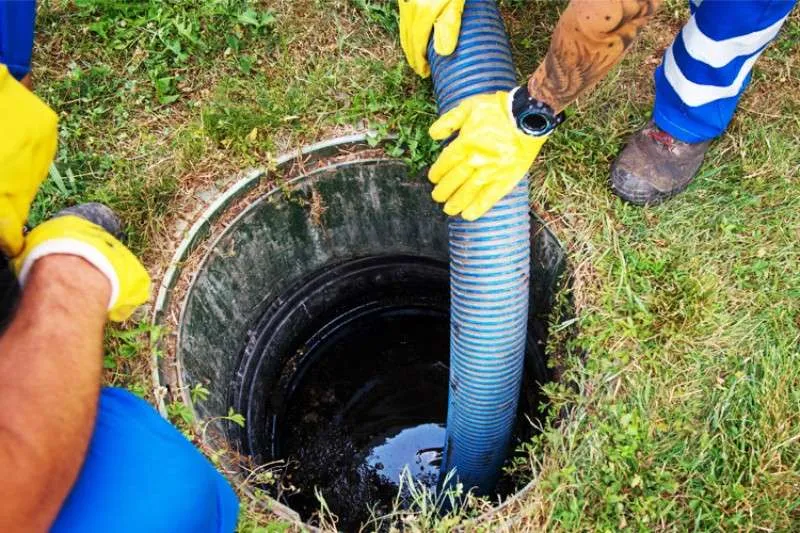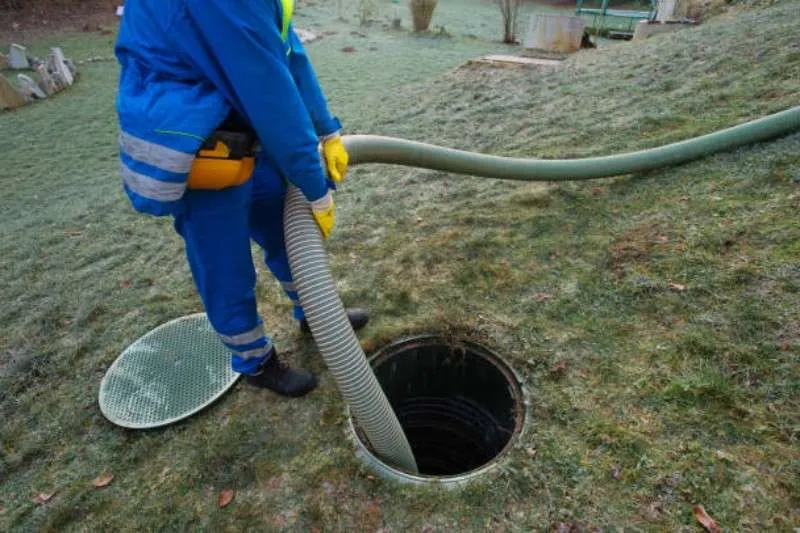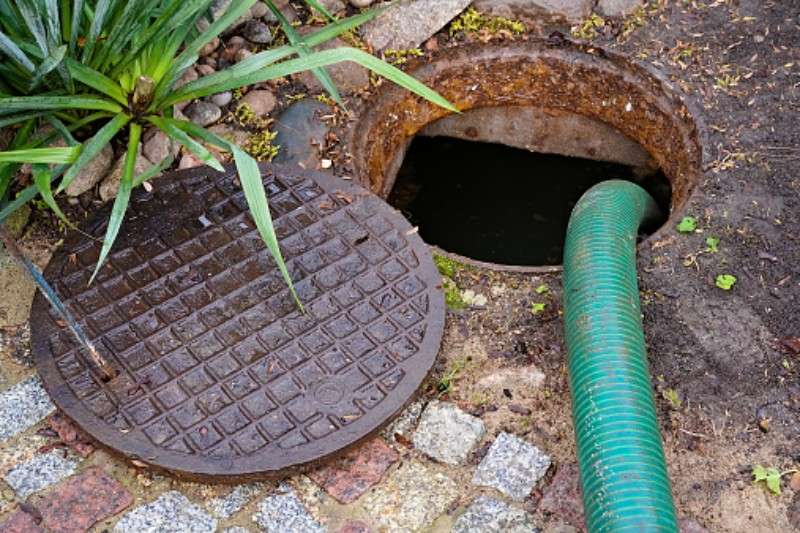Are you ever concerned about what to do with materials and products that go down your sink or toilet? Do you know if the items you’re using are septic-safe cleaners or can cause damage to your system? If these concerns have been on your mind. Here, we’ll discuss exactly what it means to be “septic safe” and how it applies to everyday products.
From cleaning agents and kitchen supplies to plumbing fixtures like sinks and toilets – we’ll cover a wide range of topics related to septic safety. Whether you own a home with an in-ground septic tank or manage commercial properties – understanding which items contribute positively (or negatively) will help ensure that your system operates without fail.
Introduction to Septic Systems: Basic Overview and Functioning

Septic systems are a type of wastewater treatment system used in areas lacking access to municipal sewers. A septic system usually consists of two parts: an underground tank and a drainage field. The tank holds the wastewater and any solid waste material until it can be treated, while the drainage field disperses the wastewater into the soil below.
The water inside the tank is separated into three layers: scum, liquid, and sludge. The scum floats on the liquid layer while solids settle at the bottom as sludge. As bacteria break down organic matter in the tank, they release gases like methane and carbon dioxide, which rise to form bubbles within the liquid layer. This process is known as “anaerobic respiration” and helps to keep the tank functioning optimally.
Septic systems need regular maintenance to ensure that all components remain in optimal working order, including properly disposing of waste materials. Any material or product that enters your septic system should be labeled as “septic safe” or “safe for use with septic tanks” to avoid potentially damaging your tank or drainage field.
What Does “Septic Safe” Mean: Definition and Explanation

The term “septic safe” describes products and materials designed to be safely disposed of down a drain or flushed into a septic tank pumped without causing any damage. This includes items like cleaning agents, kitchen supplies, and even fixtures such as sinks and toilets For an item to be considered septic safe, it must meet certain criteria:
- The product must be biodegradable within the appropriate time frame (usually around 90 days).
- It should not contain ingredients that can produce toxic chemicals when exposed to wastewater.
- It should not cause blockages in your pipes or interfere with the natural process of anaerobic respiration inside your tank.
Septic-safe items are designed to break down quickly and not disrupt the natural flow of wastewater through the septic tank. Most of these items are labeled with an “ic Safe” or “Safe for Use With Septic Tanks” logo to make it easier for consumers to identify products that won’t cause any damage.
Though many products can be safely used with septic systems, some items, such as plastic bags, paper towels, sanitary napkins, or oil & grease, should never be put into your system. Doing so may cause blockages or other problems, leading to costly repairs or even an entire system replacement.
Why it’s Important to Use Septic Safe Products
Using septic-safe products is essential to protect your system from damage and ensure that it operates without fail. Using the wrong types of items can cause blockages or other issues and interfere with the natural process of anaerobic respiration inside your tank.
This can result in hazardous gases like methane being released into the environment, potentially causing health risks for nearby residents. Any disruption to a tank’s functioning can lead to costly repairs or even a complete system replacement – something most homeowners prefer to avoid.
It’s important to know which items are considered “septic safe” before introducing them into your system. Doing so will help ensure your tank remains in optimal working condition and prevent costly repairs or replacements. Furthermore, it helps to protect the environment by preventing hazardous gases from being released into the atmosphere.
Risks of Using Harsh Chemicals in Septic Systems
Septic systems rely on natural processes to break down waste, and introducing harsh chemicals can disrupt processes. While some products are designed to be “septic safe” and should not cause any, using the wrong types can result in several risks:
- Chemical burns – Certain harsh chemicals can cause burns or irritation to your skin if they come into contact with it.
- Corrosion – Harsh detergents and other chemical cleaners may corrode your system’s pipes, septic tanks, and other components over time.
- Disruption of bacterial activity – Introducing too much chlorine or other cleaning agents into your system can kill off beneficial bacteria that help break down waste.
- Foaming – Certain chemicals can cause the foam to build up in your tank, potentially leading to a backup or blockage.
- Poor drainage – Introducing too much soap or other solvents into the system can result in poor drainage and clogs in the pipes.
- Septic odors – Harsh chemicals may react with wastewater and create strong odors near your septic tank or drains.
- Sludge buildup – Chemical cleaners can cause sludge to form on the walls of your tank, which may eventually lead to clogging and costly repairs/replacements if not addressed properly.
Using septic-safe products is essential for protecting your system from damage and ensuring that it operates without fail. Doing so will also help to protect the environment by preventing hazardous gases from being released into the atmosphere.
It’s important to know which items are considered “septic safe” before introducing them into your system to avoid any costly repairs or replacements down the line. Recycled toilet paper is an essential septic-safe product for any household with a septic system.
Quickly dissolving toilet paper breaks down easily and quickly, so it won’t clog your pipes or cause any damage to your septic system. Chemical drain cleaners should always be avoided, as they will likely damage the plumbing or septic system.
How to Determine if a Product is Septic Safe: What to Look for on the Label
When shopping for products to use in your septic system, it’s important to look for the right labels. Most septic-safe products will have a label indicating that they are designed specifically for “septic systems” or “sewer systems.” Some products may be labeled as “biodegradable” or “degradable,” which means that they won’t cause any damage to the environment when used properly.
It can also be helpful to read product reviews from other consumers before making a purchase – this can give you a better idea of how well the product works and if it is truly septic-safe. If you have doubts about a product, avoiding using it in your system altogether is best.
It’s also important to watch for products with harsh chemicals or abrasive ingredients – these are usually not septic-safe and should be avoided at all costs. Examples include chlorine bleach, caustic soda, ammonia, and acid-based cleaners.
A few simple steps can help ensure you use only safe products for your septic system. Doing so will help to protect the environment and save you money in the long run by avoiding costly repairs or replacements due to damage caused by harsh chemicals.
When choosing the best toilet paper for your septic system, it’s important to look for one specifically designed for it. It kills beneficial bacteria, which help to break down waste.
Common Ingredients in Septic Safe Products: What to Expect
Septic-safe products are usually non-toxic, biodegradable, and free of harsh chemicals. Common ingredients include enzymes, bacteria, and plant matter such as citric acid or citrus oils. These natural ingredients help to break down waste and prevent hazardous gases from being released into the atmosphere.
Some products may also contain surfactants – chemicals that reduce surface tension between two liquids or between a liquid and a solid. This helps create better cleaning power without introducing harsh chemicals into your system.
Some septic-safe products may contain absorbent materials such as sawdust or peat moss. These materials help to absorb moisture and reduce odors in your septic tank.
FAQS
What does it mean if something is septic-safe?
Septic-safe products are designed to be used in septic systems without causing any harm or damage. These products usually contain natural ingredients such as enzymes, bacteria, and plant matter, which help to break down waste and prevent hazardous gases from being released into the atmosphere.
What does septic safe mean for toilet paper?
Septic-safe toilet paper is designed to break down quickly in septic tanks without causing blockages or damage. These products usually contain fewer additives and dyes than regular toilet paper, making them easier to break down.
Is all toilet paper septic safe?
No, not all toilet paper is septic safe. It’s important to check the label of any biodegradable toilet papers you purchase and look for the words “septic safe” or “for use in septic systems.” These products are designed specifically for use in septic systems without causing any damage or blockages.
Does septic safe mean flushable?
No, not necessarily. Some products may be labeled as “septic safe” but may still cause clogs in your pipes or damage your septic system. It’s important to read the product label carefully and ensure it is designed specifically for use in a septic system.
Does septic safe mean RV safe?
Yes, most septic safe products are also RV safe. However, checking the label of any product you purchase is important to ensure it is specifically designed for use in RVs or campers. Some products may be labeled “septic safe” but not suitable for use in RVs and campers.
Conclusion
Septic Safe is a great way to ensure your system works properly and responsibly. The important thing to remember is that while there are a lot of different products you can use, not all will be septic-friendly. Be sure to read labels, follow instructions, and take the necessary steps to keep your septic system healthy. Doing this will help extend your system’s life and keep it running efficiently throughout the years. Considering what products are septic-safe, keeping these tips in mind can go a long way.


